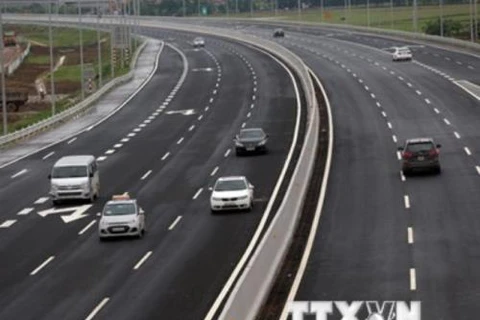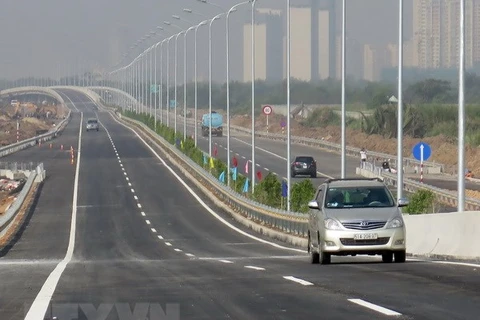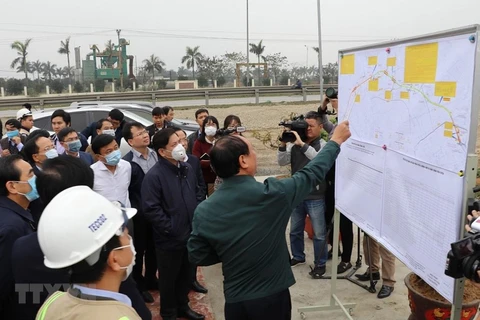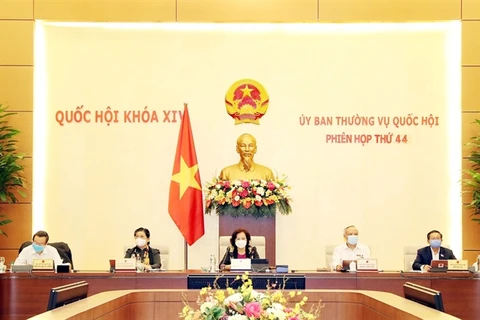 A toll booth station on Phap Van - Cau Gie Highway which was built under build-operate-transfer practice. (Photo thanhnien.vn)
A toll booth station on Phap Van - Cau Gie Highway which was built under build-operate-transfer practice. (Photo thanhnien.vn) Hanoi (VNS/VNA) - Ownership rights and risk-sharing mechanisms must be clarified in public-private partnership (PPP) law to encourage the participation of private investors and ensure efficiency as well as transparency of PPP projects, according to Tran Chung, Chairman of the Vietnam Association of Road Traffic Investors.
The draft PPP law is expected to be passed at the 14th National Assembly’s ninth meeting later this month.
Chung said that the nature of PPP was a fixed-term contract between the Government and a private investor to get the private sector involved in providing public services and products.
Under the latest draft, regulations about ownership rights, obligations of the contract’s entities and how to handle disputes and violations remained vague and needed more consideration, said Chung.
Duong Dang Hue from the Vietnam International Arbitration Centre (VIAC) said the law should clarify the ownership rights of investors in PPP projects, which was important to attract the private investment and ensure accountability. The latest draft ignored this issue, Hue said.
Pham Van Thuong, deputy general director of Construction Investment 194 Joint Stock Company, said in PPP, risk-sharing was the core to attract investors.
Thuong added that investors expected the Government would protect their rights even when there were changes in policies and planning which might cause drops in revenue.
To attract private investors to PPP projects, the Government needs preferential policies in areas like banking credit and lending rates, Thuong said.
Regarding the risk-sharing mechanism in the latest draft, lawyer Le Dinh Vinh from the VIAC said the investor was still at a disadvantage compared to the Government.
Under the draft, when the project earns higher revenue than planned, the excess will be shared between the Government and the investor. However, when the project’s revenue is lower than planned, the Government would share the loss with the investor only when there were changes in policies and planning which affected revenue collection.
Vinh said the mechanism should be given more consideration to ensure balance.
Another important matter in PPP was regulations about handling disputes, VIAC lawyer Nguyen Tien Lap said.
Lap said that in many countries, about 60 percent of PPP projects did not reach the expected targets in terms of financial efficiency, quality and technology. PPP was a way to raise private investment but in fact, the investment was mainly lent by banks and the risks would be on the Government if the investors went insolvent.
Lap said PPP projects should be focused more on the community’s benefits rather than the Government, investors or lenders.
In addition, transparency must be ensured when implementing PPP projects, from selecting investors, raising capital, fee levels, payback period and revenue.
Vietnam, to date, has 336 projects implemented following PPP practice, mainly transport infrastructure projects./.
VNA























